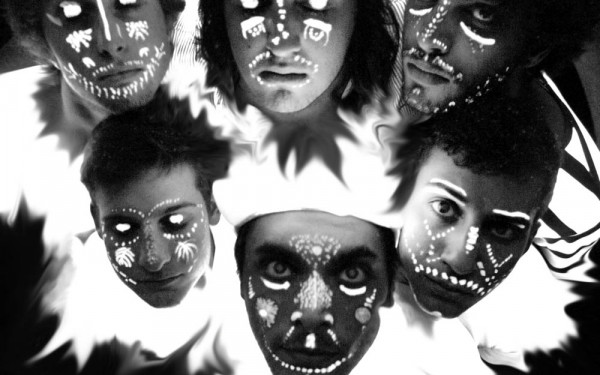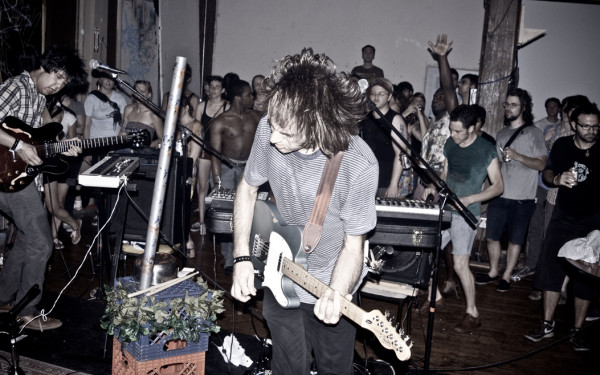Inspiration in Isolation
Malajube Come in From the Cold With La Caverne
The cover of Malajube’s most recent album depicts a weird, glowing geometric house. Maybe not as strange as the lung-butterfly creature on the cover of their Polaris Prize-nominated 2006 album Trompe-l’oeil, but it’s still a little odd.
Apparently, the skeletal dome-like structure is close to the band’s heart—it’s an illustration of where they recorded their fourth album, La Caverne.
In the grand tradition of musicians retreating to the middle of nowhere to record (see: Bon Iver; any band who cites “nature” as an inspiration), Malajube escaped to the woods of northern Quebec for their latest release.
“We rented this huge house, it was pretty inspiring,” said Thomas Augustin, the band’s keyboardist, vocalist, and an ex-Concordia student. “It was a strange feeling, the house filled with our instruments, our gear and ourselves for two months in the middle of the woods.”
Augustin describes their rented dome as something that once was made to look futuristic, although it was probably built sometime in the 1970s. Something, he said, that wouldn’t look out of place in A Clockwork Orange.
“It’s an experience,” he said, “You’re really living as a band and creating something. The time spent isolated there was part of the experience.”
Prior to their stint in the ‘caverne,’ Malajube spent the majority of the past year on the road, touring across Canada and the U.S., but they admit that having their final show in Montreal is something that they’re looking forward to.
After playing shows for audiences that were, for the most part, completely unaware of what their lyrics meant, coming home to Montreal means that people will sing along.
“There’s always a couple of francophones scattered around and they seem to always hear about the shows,” said Augustin. “For us, it’s the same when we’re away from home and we hear French. It gets our attention.”
“People know the lyrics and the shows are a lot bigger,” he said. “We almost feel celebrated every time; we don’t have to convince anybody.”
Unlike bands that stop writing in their native tongue after a few releases, Malajube has written exclusively in French so far. That hasn’t stopped them from appealing to a wider market, but if you happen to go to a Malajube show outside of Quebec, there’s one thing that’s sure to help you break the ice: speaking to them in French.
“There’s always a couple of francophones scattered around and they seem to always hear about the shows,” said Augustin. “For us, it’s the same when we’re away from home and we hear French. It gets our attention.”
To those looking for a straightforward follow-up to 2009’s Labyrinthes, also nominated for Polaris, La Caverne isn’t particularly comparable to the band’s body of work thus far.
The album leaves behind the drama of their last album to embrace a more dance-friendly vibe, though it does leave their climactic orchestrations intact.
“We tried some weird recording techniques [for this album],” said Augustin. “A bunch of keyboards and a lot of guitars, either weirdly or badly tuned.”
Replicating the same sounds live is usually a challenge, as it depended on the physical space where they recorded La Caverne.
“There’s a lot of melodies and details in our record,” he said. “But there’s only four of us. Personally, even if I had four hands, I would still be able to find stuff to play.”
After their show in Montreal, the band will be taking a break before heading back on the road for a couple of shows in the new year.
As for resolutions, Augustin said that as long as they’re able to keep creating new things, he’ll be satisfied.
“I’m really proud of what we’ve done,” he said. “But if we can keep doing something that’s going to surprise people and still excite us—that would be a good deal.”
Malajube & The Besnard Lakes / Metropolis (59 Ste. Catherine St. E.) / Dec. 14 / 8:30 p.m.
Check out photos from the show here.

1_900_600_90.jpg)


